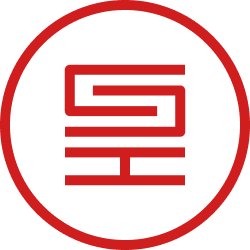*Note: Names have been changed for privacy purposes
“Names are an intimate pocket within every language. There are no other words we arrive at quite so purposefully and lovingly as the names we give our children.”
~ From “alfabet/alphabet” by Sadiqa de Meijer
My oldest known name is 江静月 (Jiang Jingyue). It is not my birth name and I don’t know who gave it to me. 江 is after the location I was adopted from. I’ve been told whoever gave me that name sounds like they were educated because it contains a literary term. I’ve also been told twice by Chinese people that it doesn’t sound like a real name, yet another fantasy that makes up my story.
My parents made 静月 my legal middle name, to preserve some of my Chinese-ness, sandwiched between two European names. They broke it in two, “Jing Yue” instead of “Jingyue” as my adoption documents said. Another cut tie, a space I can’t fill. They said it was because 静月 is two characters, but I can’t help but think it’s still meant to be one name.
When I was younger, I spelled it with a hyphen, “Jing-Yue”, a bridge across the space. When I was in high school and renewing my passport, I learned it should be “Jing Yue”. I realized that some of my official documents had it as “Jing Yue” and others “Jing-Yue”. It hasn’t yet caused any problems, but I’m anxious now every time I have to include it. I suspect based on a document trail that my parents meant for it to be a space, but I’m not sure. How to explain the hyphen? Was it a mistake or an attempt to stitch the two names back into one, 静-月, instead of 静_月?
What better symbol of the identity confusion of an adoptee, that she is not sure how to spell the oldest of her names?
Some people consider renaming an adoptee an act of violence, stripping them of their previous identity to replace it with your own. I’m not sure. Once it has emerged from its chrysalis, no one calls the butterfly a caterpillar anymore. It is still the same being, but it has emerged changed. I do not feel like 江静月.
Sometimes, I consider if I would change my documents to match. It seems like a lot of effort and time. The story of an adoptee, anything related to identity is a lot of effort and time.
I’m not sure what I would pick, would I choose the “-”, to bridge the space or would I choose the “_” as my adoptive parents intended? Or would I choose to close the gap and get rid of the confusion, 静月 once more? Would I go back to 江静月 or choose a new name entirely, metamorphosize myself on my own terms? I do not know. Until I do, I stay with my current names, where only the names my adoptive parents gave me are certain.
“How do we pronounce our skin in English”
~ From “granted to a foreign citizen” by Sun Yung Shin
By Hannah



